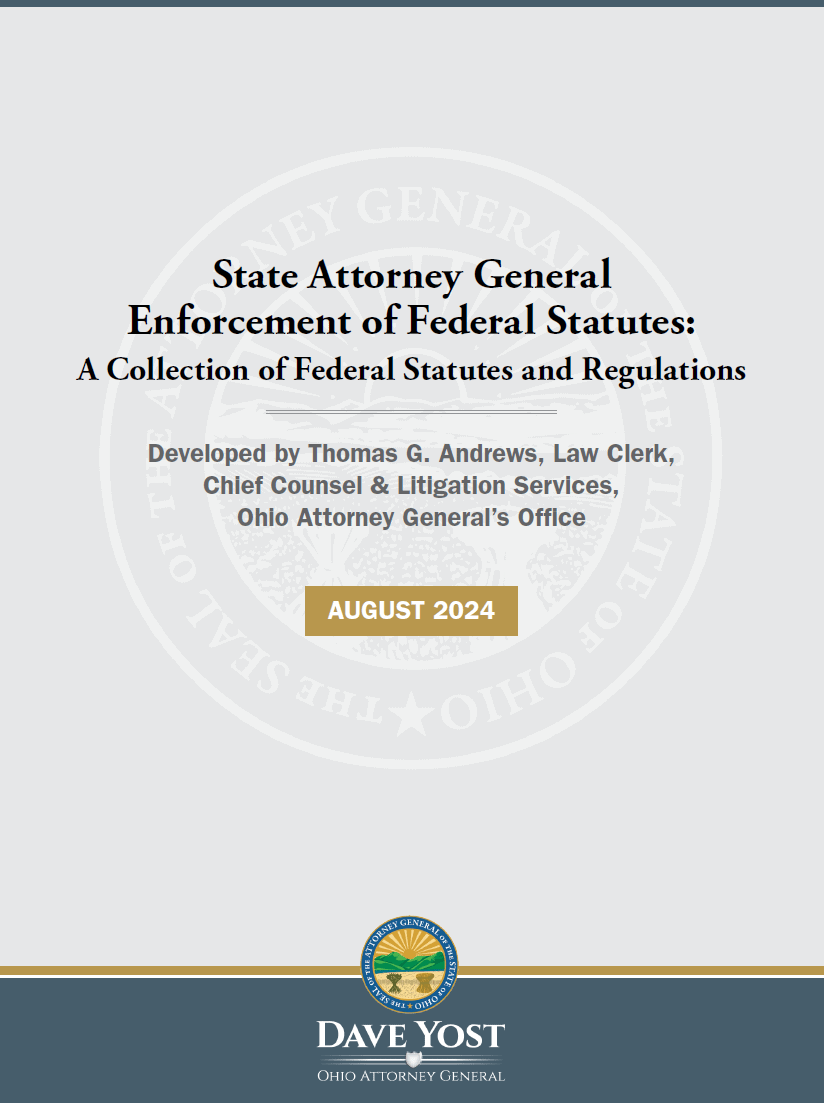The Texas Court of Criminal Appeals recently ruled, on separation of powers grounds, that the attorney general of Texas does not have authority to prosecute violations of Texas’ election laws, and that a statute purporting to give the attorney general that power is unconstitutional. Texas v. Stephens, No. PD-1033-20 (Tex. Crim. App. Dec. 15, 2021).
While investigating someone else, the FBI uncovered potential campaign-finance violations by the elected sheriff of Jefferson County, Texas. The FBI provided this information to the Texas Rangers. Upon further investigation, they concluded that the sheriff had received potentially illegal campaign contributions and gave the information to the county district attorney. The district attorney declined to prosecute and referred the Rangers to the Texas attorney general. The attorney general presented the case to a grand jury, relying on Texas Election Code §273.021, which provides, “The attorney general may prosecute a criminal offense prescribed by the election laws of this state.”
The sheriff was indicted and filed a motion to quash, arguing that the attorney general did not have authority to prosecute a violation of the Texas Penal Code. Although the trial court dismissed part of the indictment, the court of appeals held that the statute “clearly and unambiguously gives the Attorney General power to prosecute criminal laws prescribed by election laws generally whether those laws are inside or outside the Code.” The court of appeals reasoned that the Texas Constitution authorizes the attorney general to act on behalf of the state against corporations and that corporations, like elections and elected offices, are wholly creatures of state action. Thus, the attorney general was authorized to prosecute election law violations. The sheriff appealed on the grounds that the statutory grant of prosecutorial authority violates the separation of powers doctrine in the Texas Constitution.
The Court of Criminal Appeals began by reviewing Texas’ constitutional and statutory provisions regarding the attorney general. According to the court, the attorney general has never had authority to institute a criminal prosecution. The attorney general did have authority to handle appeals of criminal cases in Texas until the 1876 constitution (still in effect today) removed that authority completely, unless a county or district attorney requests assistance.
The Texas constitution provides for three separate branches of government: legislative, executive and judicial. The constitution also “prohibits the exercise [by one branch] of any power ‘properly attached to either of the others,’” unless that power is grounded in a constitutional provision. Because the Texas constitution makes this separation explicit, it is likely that Texas would “more aggressively enforce separation of powers between its governmental branches than would the federal government.” The Texas constitution places the office of attorney general in the executive branch and the district and county attorneys in the judicial branch.
The attorney general argued that, under Art. IV of the Texas constitution, the legislature may act to give the attorney general the power to “perform such other duties as may be required by law,“ and section 273.021 is the legislature’s exercise of that authority. The Court of Criminal Appeals observed that there is no explicit constitutional authority for the attorney general to prosecute criminal cases and rejected the lower appellate court’s analogy to the regulation of corporations, which is a specified power of the attorney general. The court also noted that the Texas constitution granted the prosecutorial authority to county and district attorneys, and held that the “other duties” mentioned in Art. IV did not encompass the judicial branch duties of the county and district attorneys. The court also accepted the sheriff’s argument that many parts of Texas government, including the Water Development Board and county clerks, may be assigned “other duties” by the legislature, so reliance on “’other duties’ would render meaningless the separation of powers.” The court held that the attorney general’s “other duties” must be executive branch duties. “Simply put, the “other duties” clause may not transform the judicial duty of prosecutorial power into an executive duty. Such an interpretation would exempt the attorney general from the explicit separation-of-powers limitation.”
The Court of Criminal Appeals next discussed the constitutionality of the statute. Because the Texas constitution explicitly separates the duties of the three branches, the court held, “Absent a request from the district attorney, and without the district attorney’s supervisory authority, the Attorney General violates the separation of powers provision by assuming a power that is more “properly attached” to a member of the judicial branch of government. [citations omitted] Since none of the Attorney General’s enumerated duties concern criminal or electoral matters, Election Code section 273.021 is unconstitutional.” The Court of Criminal Appeals reversed the appellate court decision and remanded the case to the trial court for dismissal. The attorney general filed a motion for rehearing which is pending before the court.




